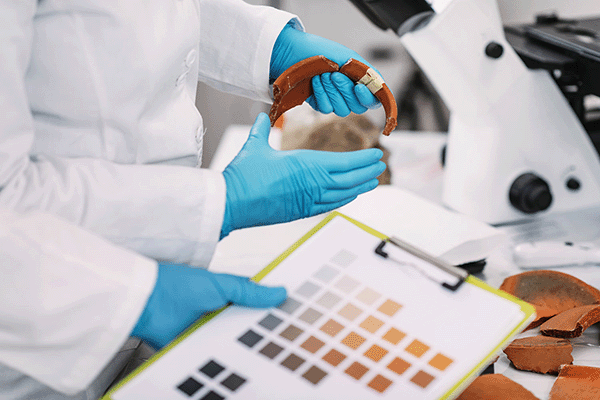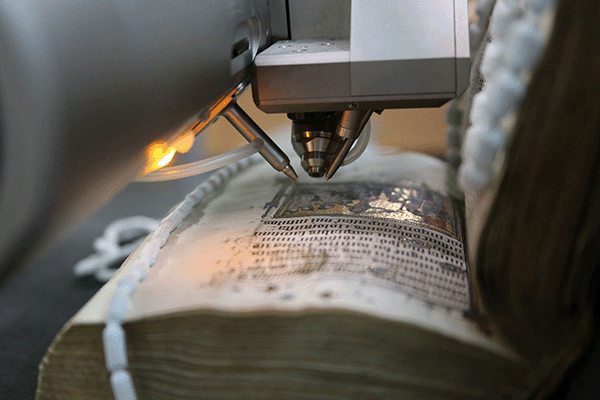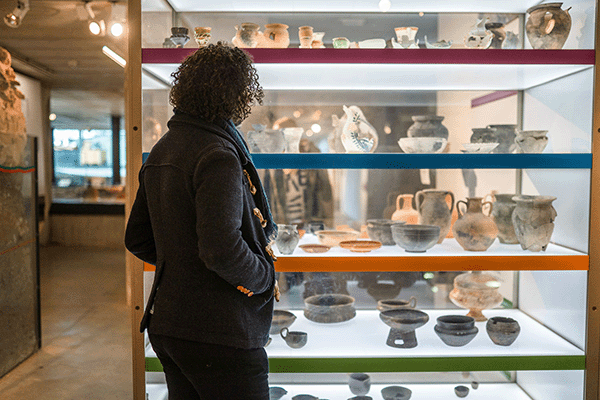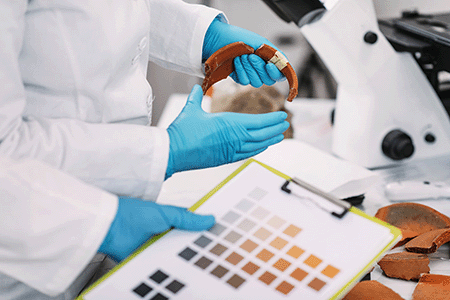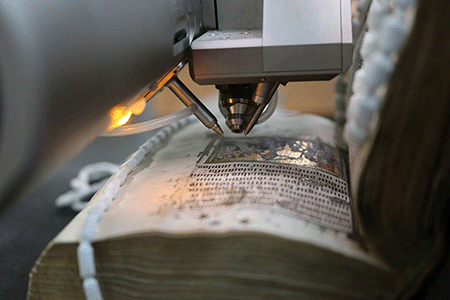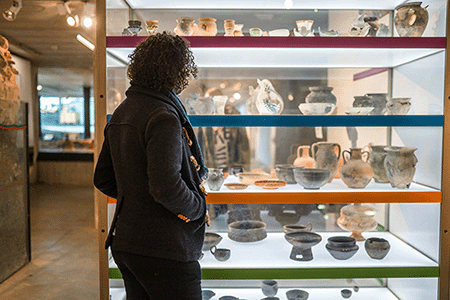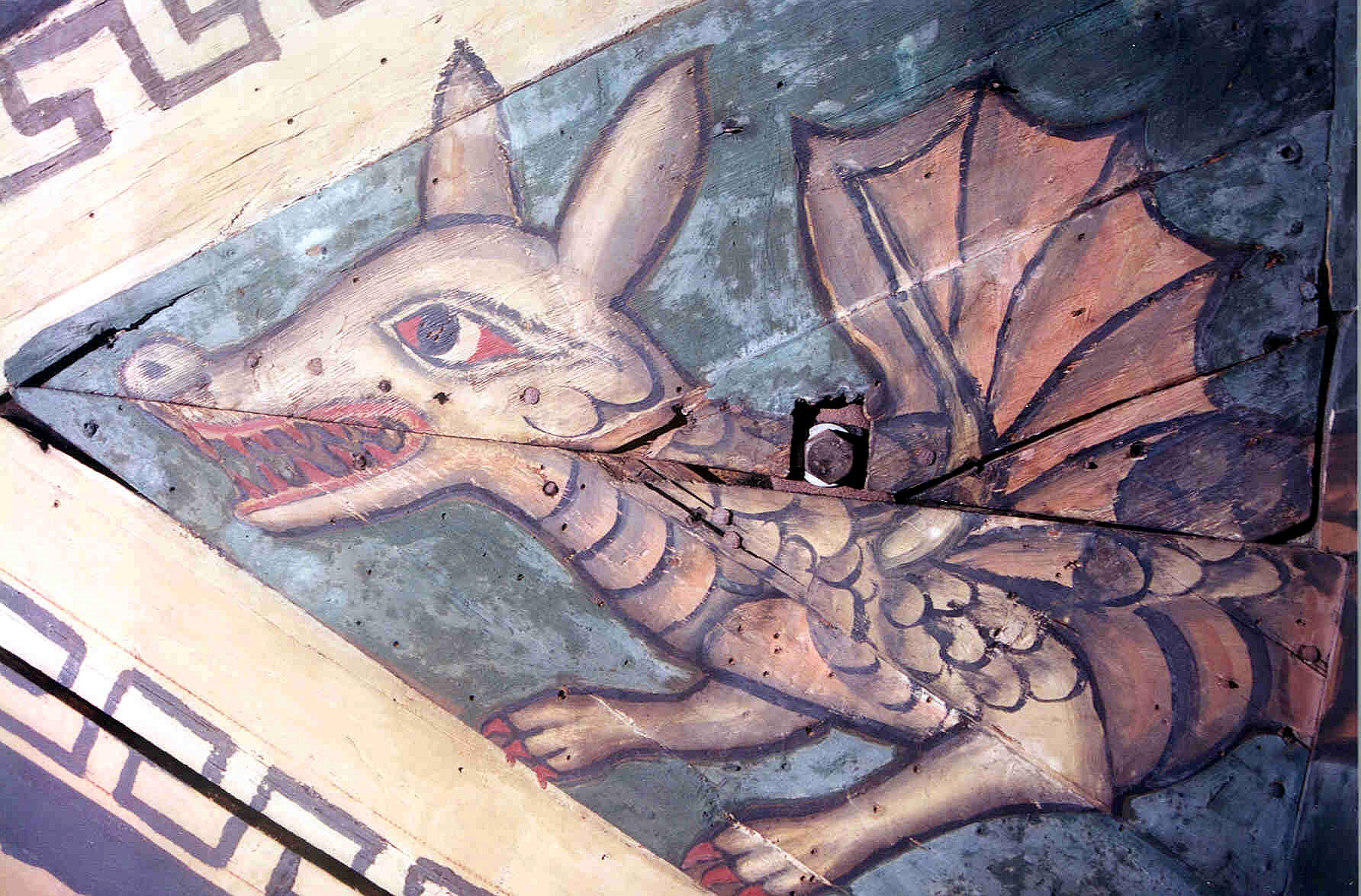The Heritage Science Data Service (HSDS) provides core Digital Research Services as part of the UK’s RICHeS programme. The project is funded by RICHeS and the HSDS extends the programme’s reach by establishing a virtual infrastructure beyond the RICHeS’ physical network of facilities and collections.
By curating datasets and enhancing access to advanced scientific research facilities, the HSDS will unlock potential for innovation in heritage science and conservation research, strengthening our ability to understand, preserve and manage the UK’s heritage.
Collaboration at the heart of innovation
The HSDS is designed and developed by the Archaeology Data Service, the UK’s leading accredited repository for archaeology and historic environment data, in partnership with the Science and Technology Facilities Council’s Hartree Centre, a cutting edge facility for high-performance computing, data analytics and AI research. The service is also supported by a consortium of key UK heritage organisations across England, Scotland and Wales, ensuring a broad and inclusive approach to data management and research accessibility.
Jo Tozer, HSDS Service Manager says:
“We’re delighted to be working with such a broad range of partners representing key heritage organisations from England, Scotland and Wales and look forward to delivering a service that will contribute to the development of an informed, collaborative and innovative UK heritage science community.”
Transforming heritage science through digital innovation
Digital tools and technologies are playing a key role in advancing heritage science and conservation research. These fields employ a broad range of technologies including digital imaging, remote sensing, 3D modelling, scientific dating and many others. These result in significant digital infrastructure requirements and many of these complementary methods are used in tandem, generating numerous datasets at large scales that require active data management to ensure long-term preservation and reuse. These datasets are primary resources, generally born-digital, which cannot be reacquired. It is therefore essential they are managed and curated according to the FAIR (Findable, Accessible, Interoperable, Reusable) data principles.
Over the next five years (2024-2029), the HSDS will:
- Map the Heritage Science Landscape: Create a comprehensive catalogue of research facilities and collections
- Connect the Dots: Build a user-friendly platform to easily navigate and access diverse heritage science data collections
- Preserve Our Past: Establish a secure, FAIR repository for long-term preservation of research data
- Empower Discovery: Create a suite of Virtual Research Environments and software tools to allow researchers to visualize and analyse data
The importance of international collaboration
Professor Julian Richards, ADS/HSDS Director says:
“By building on over 25 years experience of heritage data management and data science experience in the Archaeology Data Service and on our extensive international networks we can ensure that the HSDS is sustainable and embedded within wider European digital initiatives for the next 25 years and beyond”.
International partnerships and funding are critical to conservation and heritage science research. Learn more about how European funding and collaboration supports the Archaeological Data Service (ADS) in the UKRI video: European Funding: Insights on international collaboration & funding success
Turn your research data into lasting heritage assets
HSDS serves as the default repository service for research data generated from non-private use of RICHeS equipment and facilities, offering no-cost deposit options for eligible projects.
For other heritage science initiatives, the HSDS offer competitive deposit services that can be included as eligible costs in Arts and Humanities Research Council (AHRC) research grant proposals.
To discuss your project’s data management needs or receive a tailored quote, contact the HSDS team at collections@hsds.ac.uk before finalising your project proposal.
How to connect with the HSDS
- Visit the Heritage Science Data Service website
- Receive HSDS updates via the Archaeology Data Service quarterly e-newsletter
- Follow HSDS on social media – LinkedIn, Bluesky and Instagram
- Contact the team via the HSDS Helpdesk (help@hsds.ac.uk)

